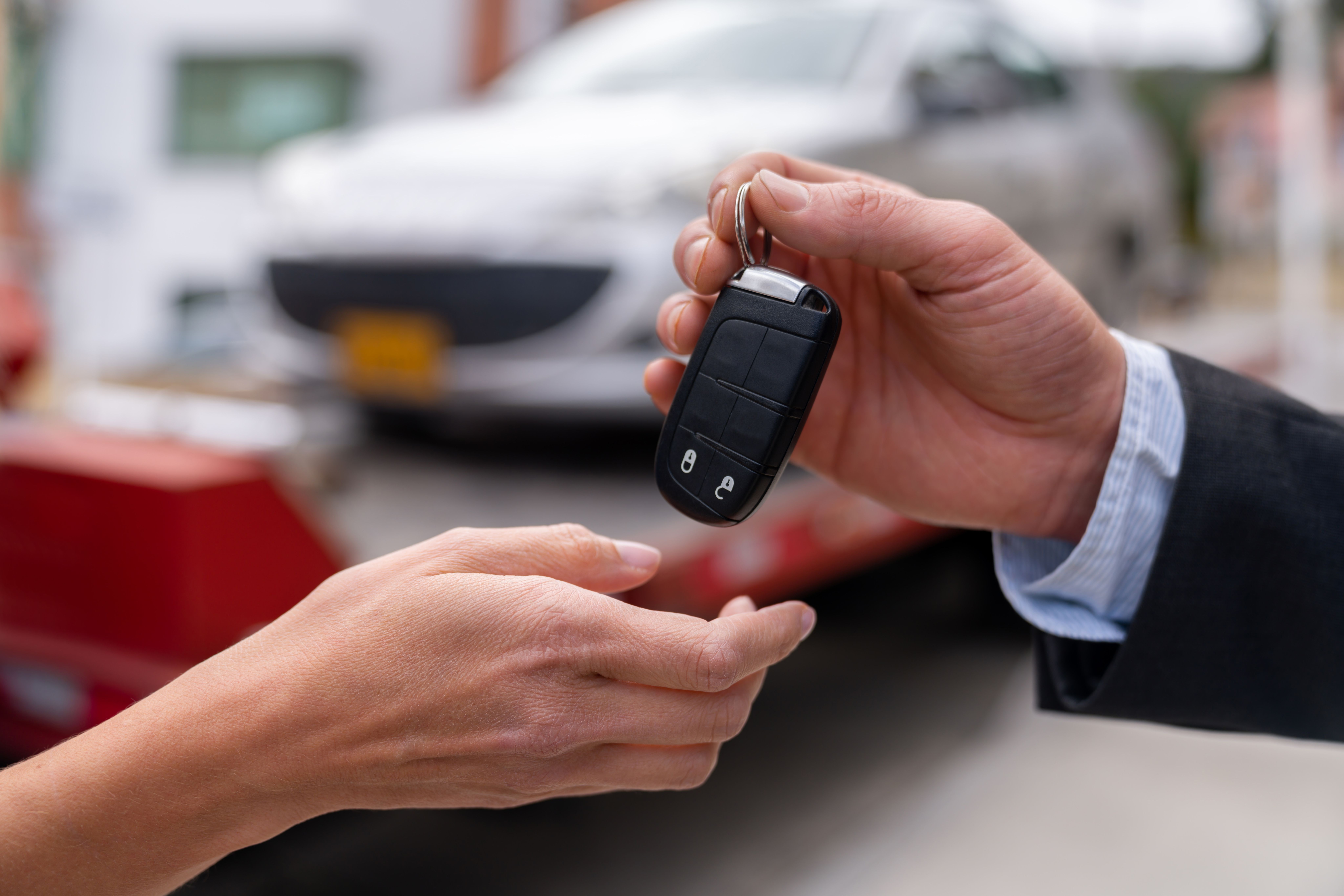Car Buyer and Seller Contracts: What You Need to Know
Buyer and seller contracts are key to a smooth car sale. Cazoo’s guide explains the essential paperwork needed to protect both parties and ensure a hassle-free transaction.
The Cazoo editorial team
Published on 22 August 2025 | 3 mins read

When you're buying or selling a car privately, paperwork might not be the most exciting part of the process, but it's definitely one of the most important. Think of it as your safety net – protecting both you and the other person from any nasty surprises down the road.
A proper car buyer and seller contract isn't just a formality. It's your proof of purchase, your get-out-of-jail-free card if things go wrong, and honestly, it makes the whole transaction feel more professional and trustworthy. Whether you're buying your first car or you're a seasoned seller, getting this right will save you headaches later.
What Is a Buyer's/Seller's Contract?
Simply put, a buyer's/seller's contract is like a receipt with extra protection. It's a document that officially records the transfer of ownership from seller to buyer, but it does so much more than that.
For buyers, this contract is your proof that you've legitimately purchased the vehicle. It confirms all the details you agreed on – the price, the car's condition, and any specific terms of the sale. It's particularly handy when you need to register the vehicle or if any questions arise about ownership.
For sellers, it's your shield against future liability. Once that contract is signed, you've got clear evidence that the car is no longer your responsibility. This is crucial because, legally, you could still be held liable for certain issues if you can't prove the sale took place.
In private sales especially, this agreement becomes your lifeline. Unlike buying from a dealership where everything is handled professionally, private transactions rely entirely on you and the other party getting things right.
The Legal Safety Net
Most private sale contracts include protective language like "sold as seen, tried and approved without guarantee." This isn't just legal jargon, it's your protection against buyers who might come back later claiming issues they should have spotted during their inspection.
However, here's where it gets interesting: UK law still requires that privately sold cars match their description and be roadworthy (unless explicitly sold as unroadworthy). So whilst this disclaimer offers some protection, it doesn't give you carte blanche to misrepresent the vehicle.

Essential Elements of Your Contract
Creating an effective car sale contract isn't rocket science, but missing key details can cause problems later. Here's what you absolutely must include:
Vehicle Information
Start with the car's vital statistics. You'll need the make, model, year, registration number, and current mileage. Don't forget the Vehicle Identification Number (VIN) – this unique identifier is like the car's fingerprint and prevents any confusion about which specific vehicle you're dealing with.
If there are any known issues with the car, note them down. Transparency here protects everyone involved and shows you're dealing in good faith.
Financial Details
Be crystal clear about money matters. State the agreed sale price and confirm that payment has been received in full. If you're accepting part payment or there are any other financial arrangements, spell these out clearly.
Include the payment method too – whether it's cash, bank transfer, or cheque. For larger amounts, bank transfers are often safer than carrying large sums of cash around.
Terms and Conditions
This is where you include any special conditions of the sale. Perhaps the buyer is collecting the car next week, or maybe certain repairs need completing first. Whatever you've agreed on, get it in writing.
The "sold as seen" disclaimer typically goes here too. While this offers some protection, remember it doesn't override your legal obligations to describe the car accurately.
Signatures and Documentation
Both parties should sign and date the contract. Print two copies – one for the buyer and one for the seller. This might seem obvious, but you'd be surprised how often people forget this crucial step.
Legal Considerations and Your Rights
Understanding your legal position is crucial, whether you're buying or selling. In the UK, even private sales come with certain legal protections and obligations.
Seller Responsibilities
As a seller, you must ensure the car matches its description. If you've said it has a full service history, it needs to have one. If you've claimed it's never been in an accident, that needs to be true.
You're also required to ensure the vehicle is roadworthy unless you're explicitly selling it as unroadworthy. This means basic safety requirements like working brakes, lights, and steering should be functional.
The good news is that once you've sold the car and have a proper contract, your responsibilities generally end there. The buyer takes on ownership and all associated risks from that point.
Buyer Protections
Buyers have fewer protections in private sales compared to dealer purchases, but you're not completely without recourse. If the seller has deliberately misrepresented the vehicle, you may have grounds for legal action.
Always inspect the car thoroughly before signing anything. Once you've agreed it's "as seen," it becomes much harder to claim compensation for issues you could have spotted.
Documentation Requirements
Beyond your sale contract, ensure you have all necessary documents. The seller should provide the V5C registration document (log book), any service history, MOT certificates, and manuals or spare keys.
For the V5C, the seller fills in the buyer's details and sends the relevant section to DVLA. The buyer gets a portion to keep as proof of purchase until the new log book arrives.

Creating Your Contract Template
You don't need a law degree to create an effective car sale contract. Here's a straightforward template that covers all the essentials:
Private Car Sale Agreement
Vehicle Details:
- Make and Model: ____
- Registration Number: ____
- Year: ____
- Mileage: ____ miles
- VIN: ____
- Colour: ____
Sale Details:
- Sale Price: £________________
- Payment Method: ____
- Date of Sale: ____
Seller Declaration:
I, [Seller's name], confirm that I am the legal owner of the above vehicle and have the right to sell it. The vehicle is sold as seen, tried, and approved by the buyer without guarantee. Payment of £[amount] has been received in full.
Buyer Declaration:
I, [Buyer's name], confirm that I have inspected this vehicle and accept it in its current condition. I understand this vehicle is sold without warranty.
Signatures:
Seller: __ Date: ________
Buyer: __ Date: ________
Tips for a Smooth Transaction
Meeting in a safe, public location is always wise for private sales. Car parks of busy shopping centres or service stations work well. Bring a friend if possible, and let someone know where you're going.
For payment, bank transfers are increasingly popular as they're traceable and secure. If accepting cash, meet at a bank where you can verify notes and deposit the money immediately.
Take photos of the contract signing and any vehicle documents. Digital records can be helpful if questions arise later.
When Things Go Wrong
Despite your best efforts, sometimes issues arise after the sale. Having a proper contract makes resolving these problems much easier.
If you're a seller and the buyer claims the car isn't as described, your contract and any photos of the vehicle's condition become crucial evidence. Document everything and seek legal advice if needed.
Buyers who discover significant undisclosed faults should first try resolving matters directly with the seller. If this fails and you believe you've been deliberately misled, Citizens Advice or legal professionals can guide you on your options.